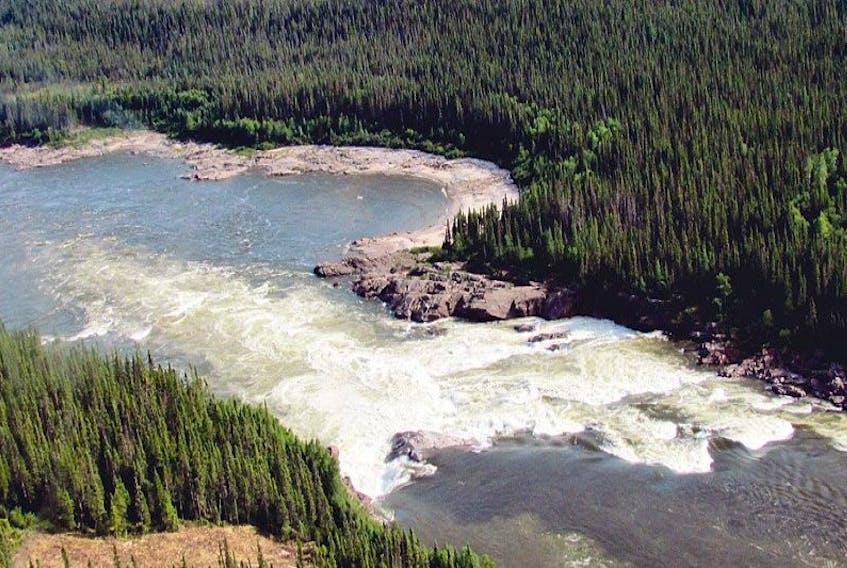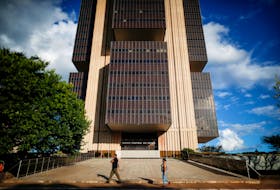Day 1
Inquiry Commissioner Richard LeBlanc emphasizes the inquiry is not a trial, but he hopes to be able to provide the story of the Muskrat Falls Project.

Expert Bent Flyvbjerg of Oxford University is the inquiry’s first witness. He tells the inquiry it common for megaprojects such as Muskrat Falls to be developed with understated early cost estimates.

A report he co-authored for the inquiry studied 274 hydro dam projects worldwide. He speaks about bias in cost estimates.
“Optimism bias and political bias are both deception, but where the latter is deliberate, the former is not. Optimism bias is self-deception,” his report states and he reiterates.
He doesn't comment specifically on the Muskrat Falls project estimates.
Full Story:
Hydro dams like Muskrat Falls commonly overbudget: expert
Day 2
Hearings focus on description of the historical use of the lower Churchill River, the area of the Muskrat Falls hydro dam, and the area downstream.

Former Nunatsiavut minister of Lands and Natural Resources Carl McLean speaks to historical Inuit activity, particularly south of the dam, to the river’s end and in the large estuary at the end of the Churchill River known as Lake Melville.
“They’re certainly inextricably linked, the river and Lake Melville — It’s the highway,” he says.
The Inuit of Nunatsiavut have been concerned with the project limiting access to the area and country foods.
Innu elder Sebastian Penunsi testifies in Innu-Aimun, with questions and responses translated to English.
“He was saying the river was used by many Innu people going in and out of the country,” the translator said. The area beside the mountain was a common portage site.” Penunsi said he did not know of Inuit people using site of falls in all his years.
Chief Jean-Charles Piétacho, for the Conseil des Innu Ekuanitshit testifies via translator that he and his people do not recognize the Quebec-Labrador border and traditionally travel to the area of the project.

He emphasized importance of living off the land.
NunatuKavut Community Council president Todd Russell speaks to significance of the river for transportation and of Lake Melville for food, saying that relationship continues.
“There’s a very deep connection,” he says of the use of the Muskrat Falls project area by NCC members. He says the handling of project development created a sense of separation of people from the project areas.
Full story
Inquiry witnesses speak to traditional use of river and Muskrat Falls
Also on Day 2
Lawyer for the Innu Nation Senwung Luk tells Commissioner Richard LeBlanc the Innu Nation does not recognize Todd Russell or NunatuKavut Community Council members as Indigenous people within Canada.

NCC lawyer Jason Cooke rebuts saying the NCC’s indigenous status has already been dealt with by the Newfoundland and Labrador Court of Appeal.
Commissioner LeBlanc warns he will not be dealing with land claims issues.
Full story
‘I’m not resolving land claims’: Muskrat Falls Inquiry commissioner
Day 3
The inquiry hears from historian Jason Churchill, who offers the history of hydroelectric project talks for the Churchill River.
Churchill tells reporters the inquiry has inherent value, for collecting documentation and testimony on everything from land use to political debate, establishing the collective understanding at this moment in time. He says it will support future research.
Also on Day 3, Nalcor Energy president and CEO Stan Marshall is called in. Marshall will return as a witness later, but offered an overview of the project components.
Full stories
Inherent value in Muskrat Falls Inquiry: historian
Nalcor will meet regulatory demands: CEO
Day 4
Hearing is paused and participants are taken on a tour of the hydroelectric project site. Meanwhile, in Supreme Court in Happy Valley-Goose Bay, civil proceedings begin involving 18 members of the Labrador Land Protectors and Grand Riverkeepers Labrador.
They involve different dates, each with allegations of contempt, of people entering the area of Nalcor Energy’s hydroelectric project at Muskrat Falls in breach of a court-ordered injunction.

Nalcor Energy attorney Chris King advises three cases tied to dates in November 2016 are not being pursued.
For cases involving a protest action in October 2016, video originally captured and live-streamed online by reporter Justin Brake of The Independent is played in court in the afternoon as evidence.
“It just seems surreal,” says Jacinda Beals, who’s facing charges. “We don’t belong here.”
Full story
Muskrat Falls protesters appear in court
Day 5
A forensic audit team says Nalcor Energy made “potential misstatements” in examining the options for powering Newfoundland and Labrador, ahead of the decision to sanction the Muskrat Falls Hydroelectric Project.
The auditors found Nalcor Energy did not have talks with Hydro Quebec about the potential purchase and import of power, before dismissing that as an option early on.
“Further analysis of these options may have led to a different decision (in how to best supply power),” the report states.
Auditors observed Nalcor Energy didn’t consider potential decrease in demand from industrial customers, the possibility of managing power demand, and relied on economic forecasts from the province’s Department of Finance.
Full story
Auditors bring Muskrat Falls as 'best option' into question
Note: This summary was updated to correct omissions and timeline.









